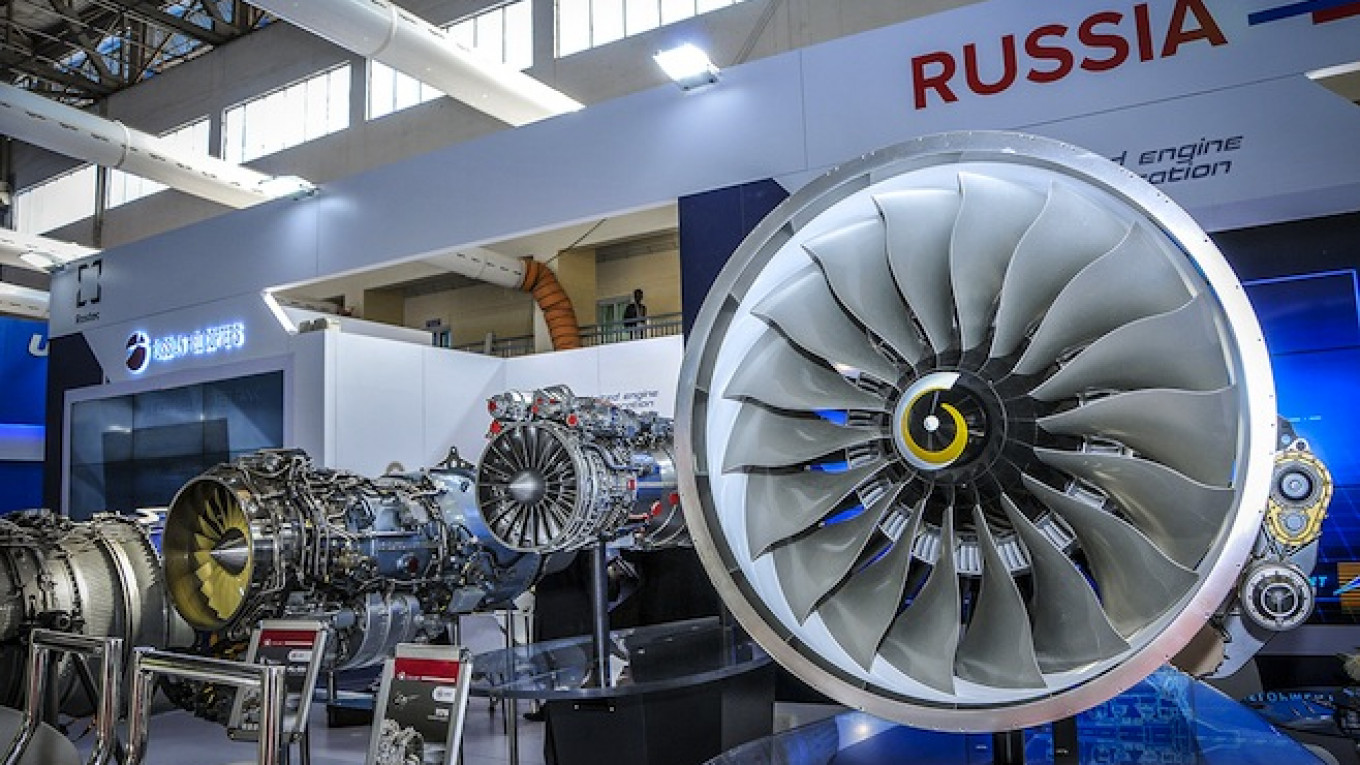Russia is pursuing costly state oil and platinum projects in Africa despite an economic crisis at home, hoping they will bolster sales, including of arms, for businesses hit by Western sanctions over the conflict in Ukraine.
Moscow has mostly focused on building ties with Asia since the U.S. and EU sanctions came into force last year, but the Africa deals signal a desire to rebuild what was a big market for its weapons and technology during the Soviet era.
The drive by government-owned industrial giant Rostec, which includes Russia's monopoly arms exporter in its vast portfolio, is complicated by the economic slowdown, which has strained government finances and forced firms to seek state support.
Lower commodity prices mean nongovernmental Russian investors in Africa in the early 2000s have mostly pulled out, but Rostec says it is on track to build a $4 billion oil refinery in Uganda and a $3 billion platinum project in Zimbabwe.
The conglomerate, which controls hundreds of firms ranging from arms exporter Rosoboronexport to the world's top titanium producer VSMPO-Avisma, sees the projects as a door-opener in Africa, particularly to its fast-growing arms market.
"Apart from proceeds from the project itself, building the crude oil refinery (in Uganda) opens markets for products of all Rostec's companies and Russian companies as a whole," Rostec said in a statement.
The company and its chief executive, Sergei Chemezov, an ally of President Vladimir Putin, face sanctions over Russia's annexation of the Crimea region and Western accusations, which Moscow denies, of supplying separatists with weapons and troops.
RT Global Resources, a 100 percent Rostec-owned subsidiary, won the contract to build and operate the refinery in February, raising concerns among some Ugandan opposition lawmakers about the selection of a company closely linked to Russian arms exports.
Weapons Sales
Uganda and Zimbabwe are not legally obliged to comply with the sanctions against Russia and both already have strained relations with the West.
Rostec said the project was launched in 2013, well before the introduction of sanctions, and remained interesting in economic terms despite them.
The first stage of the Uganda project will require $2 billion and the second $1.7 billion, with the peak of investments expected in 2018-19, it said.
Rostec did not comment in detail on its involvement in the platinum-mining project in Zimbabwe. Russian development bank Vnesheconombank (VEB), which is expected to provide finance for the project and is also under sanctions, only said a cooperation agreement had been signed by partners in the project.
When the platinum deal was signed in September, Zimbabwe's Defense Minister Sydney Sekeramayi said the southern African country was looking at possible weapons purchases from Russia as well.
While geopolitical rivalry with the West may play a role, Rostec may be inspired by China, which has spent years pouring investment and loans into the continent to help meet its demand for natural resources, although for Russia, markets are the key.
Soviet Tradition
Rostec says it is interested in working with African countries that want to develop their defense sector.
Moscow was an active supplier of weapons to Africa before the collapse of the Soviet Union, when it lost the bulk of its market share. It is now the world's second-largest arms exporter behind the United States but sales to Africa make up a relatively small fraction of its total sales volume.
"Many countries on the African continent are traditional partners of Russia in military and technical cooperation, quite familiar with the quality of Russian weapons," Rostec said.
Soviet weapons still used in Africa and requiring repairs could also support demand for Russian arms, it added.
In 2013-14, Rosoboronexport signed more than 20 contracts worth more than $1.7 billion with sub-Saharan African countries, and Rostec said it intended to increase shipments to Africa in the coming years.
Currently only 2 percent of military products supplied to African countries come from Rosoboronexport, Rostec said on its website in September.
Rosoboronexport is already working with Angola, Nigeria, Mozambique, Namibia, Tanzania and Equatorial Guinea and is also looking to develop cooperation with Kenya, Rwanda, Djibouti and Ethiopia, Rostec said.
Konstantin Makiyenko, deputy head of the Center for Analysis of Strategies and Technologies (CAST), a Moscow-based security and defense think tank, said Russian firms were interested in increasing exports to Africa because the region's weapons market was growing at a very fast pace.
"Civil projects have always aided weapons exports, that's why Rostec, which covers both civil and defense sectors, may well act as a link between civil projects and weapons sales," Makiyenko added.
Russia exported $15 billion of weapons in 2014 and has an order book worth $40 billion for weapons over the next 3-4 years, with the biggest buyers from India, China, the Middle East and Latin America.
A Message from The Moscow Times:
Dear readers,
We are facing unprecedented challenges. Russia's Prosecutor General's Office has designated The Moscow Times as an "undesirable" organization, criminalizing our work and putting our staff at risk of prosecution. This follows our earlier unjust labeling as a "foreign agent."
These actions are direct attempts to silence independent journalism in Russia. The authorities claim our work "discredits the decisions of the Russian leadership." We see things differently: we strive to provide accurate, unbiased reporting on Russia.
We, the journalists of The Moscow Times, refuse to be silenced. But to continue our work, we need your help.
Your support, no matter how small, makes a world of difference. If you can, please support us monthly starting from just $2. It's quick to set up, and every contribution makes a significant impact.
By supporting The Moscow Times, you're defending open, independent journalism in the face of repression. Thank you for standing with us.
Remind me later.


